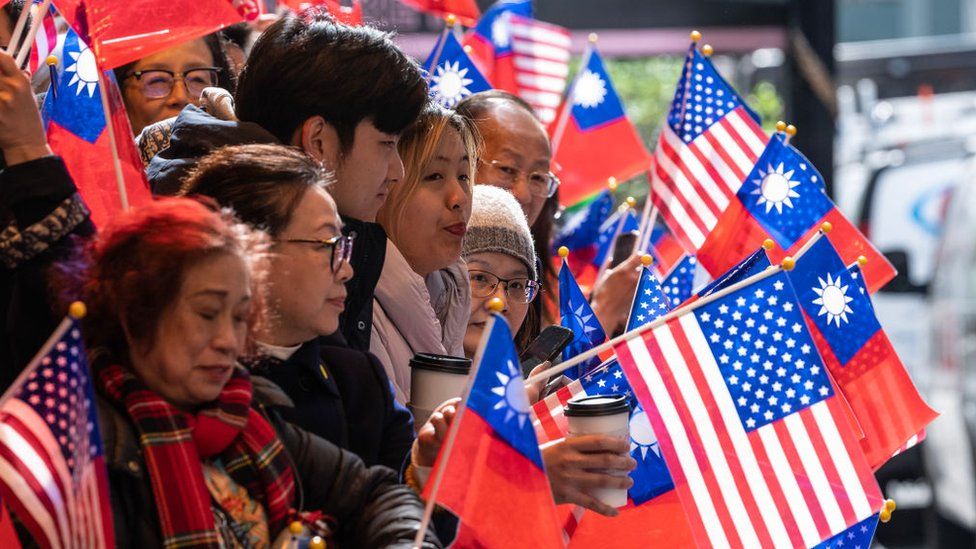On Thursday, as tensions with China increased, the US and Taiwan agreed to a new trade agreement.
The US-Taiwan Initiative on 21st Century Trade, a framework for negotiations between Washington and Taipei, marks the first agreement under it.
The announcement is made in advance of this weekend's high-level international security summit in Singapore.
Relationship tensions between the US and China have risen over the past few years.
The agreement was signed on Thursday morning, US time, according to Taiwan's Office of Trade Negotiations.
The event was held close to Washington at the offices of the American Institute in Taiwan, according to the US government, and Sarah Bianchi, a deputy trade representative for the US, attended.
The agreement, which streamlines border procedures, is the first to be signed under the new framework, which was established last year.
The plan aims to improve trade relations between Washington and Taipei and expand US exports to Taiwan.
Sam Michel, a spokesperson for the office of the US Trade Representative, said: "We thank our Taiwan partners for helping us reach this important milestone and look forward to upcoming negotiations on additional trade areas.". .
The trade negotiations have been denounced by Beijing, as it does with any form of high-level interaction between the US and Taiwan, which Beijing claims as its own territory.
Earlier on Thursday, China warned Washington against concluding any agreement "with connotations of sovereignty or of an official nature with China's Taiwan region.".
Reporters were advised by Mao Ning, a spokeswoman for the foreign ministry, that the US "must not send the wrong signals to Taiwan independence forces in the name of trade.".
The agreement was made prior to the annual Shangri-La Dialogue defense summit, which starts on Friday.
Both Chinese Defense Minister Li Shangfu and US Defense Secretary Lloyd Austin are scheduled to visit Singapore for the occasion.
Beijing turned down Washington's invitation for the two officials to meet, the Pentagon reported earlier this week.
China's decision was "unfortunate," General Austin told reporters after meeting with Japanese Defense Minister Yasukazu Hamada in Tokyo on Thursday.
In order to "manage crises and prevent things from spiraling out of control unnecessarily," Gen. Austin continued, it is crucial for nations with "significant capabilities" to communicate with one another.
After Nancy Pelosi, the then-US House Speaker, visited the island in August, relations between Taiwan and China rapidly deteriorated.
The visit of Ms. Pelosi was deemed "extremely dangerous" by Beijing.
China insists that the island should be united with the mainland, possibly using force, because it sees the island as a part of its territory.
However, Taiwan views itself as different from the Chinese mainland because it has a separate constitution and democratically elected officials.







